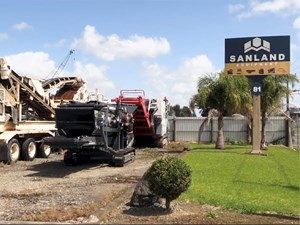Comment: Fuel and RUC costs must be passed on
Whether you’re a transport operator, an exporter, or just a consumer, fuel is one of the few commodities that affect everyone
There’s no doubt that the rising cost of fuel is the issue of the day. When you have a usually mild-mannered prime minister telling us we are being ‘fleeced’ at the pump, then you know the issue is becoming a serious concern.

It’s a problem because whether you’re a transport operator, an exporter, or just a consumer, fuel is one of the few commodities that affect everyone.
As high users of fuel, the road transport industry is extremely sensitive to such a dramatic increase in the cost of doing business. We, therefore, need to carefully consider how we respond to such fixed-cost increases.
In such a highly competitive industry, it’s tempting for operators to soak up much of this additional cost in order to keep freight rates down and remain as competitive as possible. The problem with that is the enormous stress we put on our balance sheets and the pressure that then goes on staff to make efficiencies in order to compensate.
Simply, such a situation is unsustainable, and, therefore, the only solution is for every transport business to make sure that it passes the increases in fixed costs on down through the supply chain to customers and consumers. There is no way that transporters, who I like to describe as the meat and the mustard in the supply chain sandwich, should look to soak up these increases themselves.
Road transport is a critical part of the economy
It’s important to remember that the road transport industry is a critical part of the economy. Without it, milk would rot at the farm gate, supermarket shelves would lie empty, and imports would sit on the dock.
Domestic transportation is not conventionally thought of as a value-add when it comes to the economy and, therefore, the cost of moving goods around is seen in many ways as a wasted expense. However, that could not be further from the truth.
The transportation of a product from producer to market or importer to consumer via road transport is critical to the ultimate value of that product.
The cost of production, which is usually narrowly defined as the cost of making or acquiring goods or services, should be expanded to also include the cost of the inevitable and inescapable cost of transportation.
You can bet your bottom dollar that producers are including the rising cost of fuel and other fixed inputs in their prices so it goes without saying that as an important part of the supply chain, we should do the same. Yes, that means consumers get whacked but there are few other options. Our industry has been screwed down to extremely tight margins as it is and there really is no juice left in the lemon.
CEO announcement
Finally, some readers may be aware that I have recently announced I am stepping down from my role as CEO of the Road Transport Forum. I have thoroughly enjoyed my eight years in the job and being part of the industry that literally drives the economy.
Road transport is a special industry full of challenges and opportunities, and I’m grateful for all the fantastic people I have come to know who are part of it.
My successor, Nick Leggett, is well-qualified for the role and will bring with him great experience from his distinguished career in local government. I wish him, the Forum, and the entire industry every success with the challenges that lie ahead.
I am in no doubt that the next five to 10 years will be an exciting time of great change for road transport in New Zealand and across the world. I will watch with interest.
Keep up to date in the industry by signing up to Deals on Wheels' free newsletter or liking us on Facebook.







.jpg)









